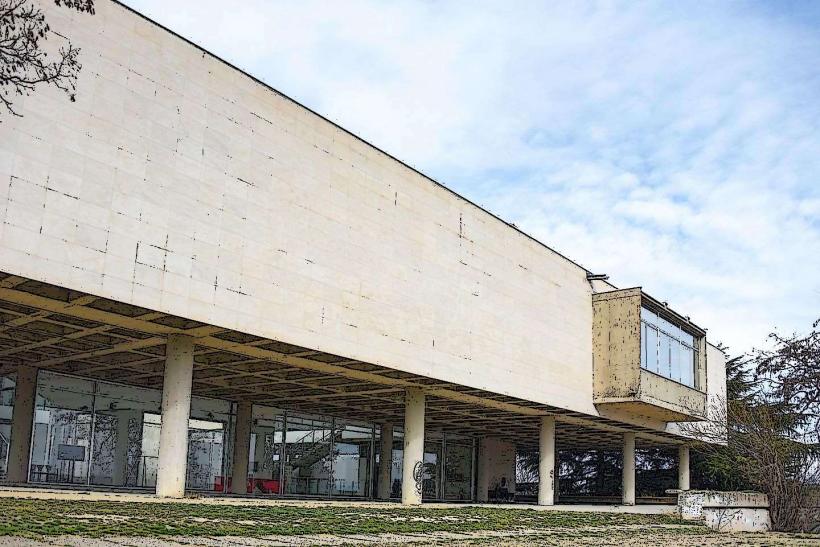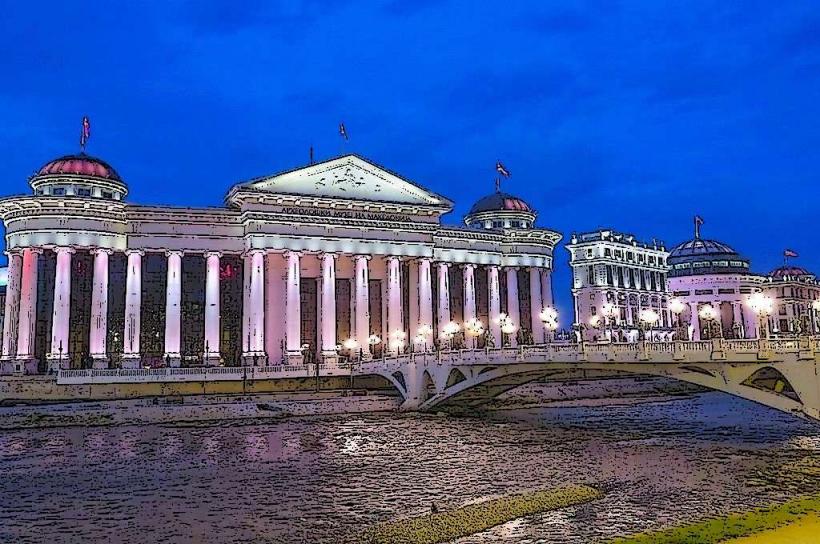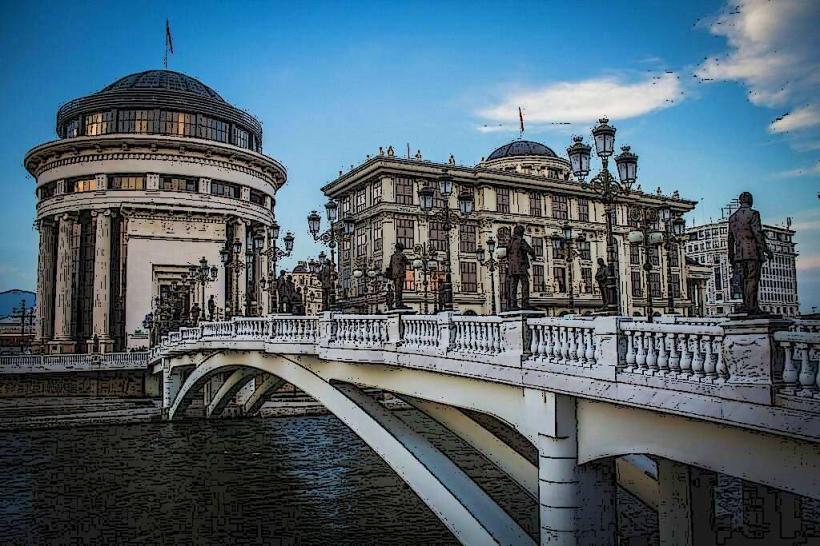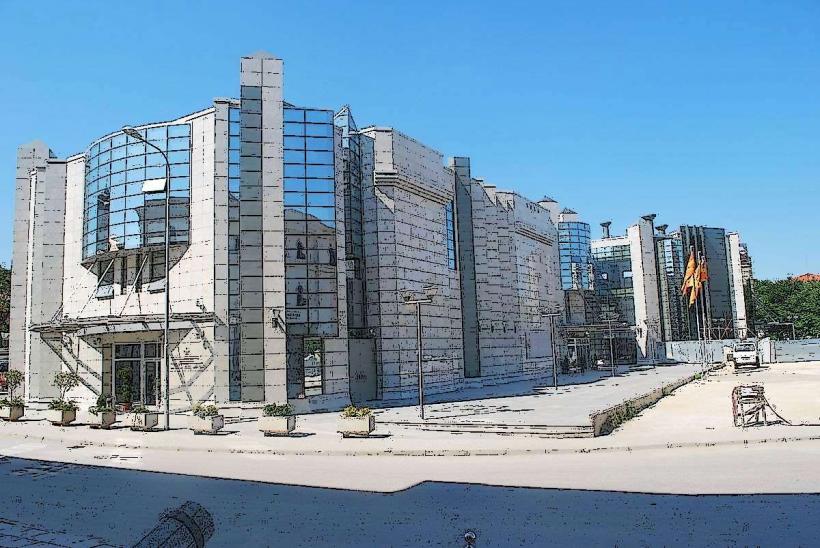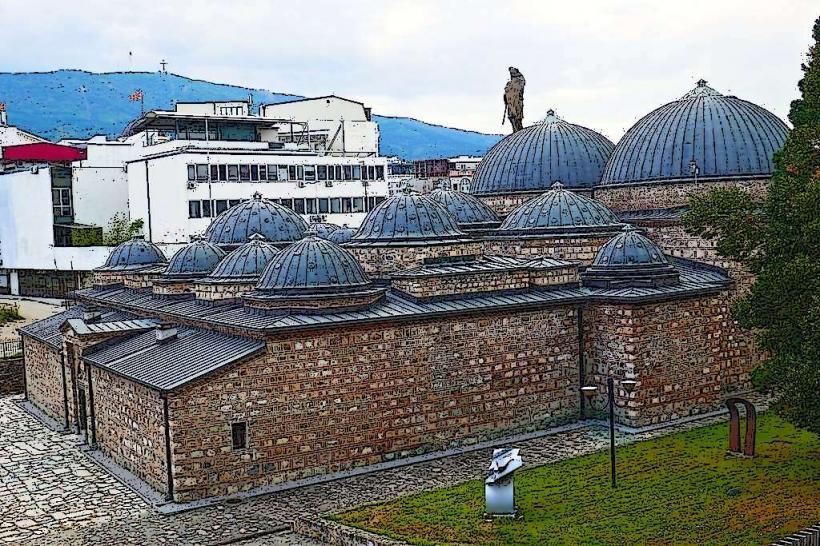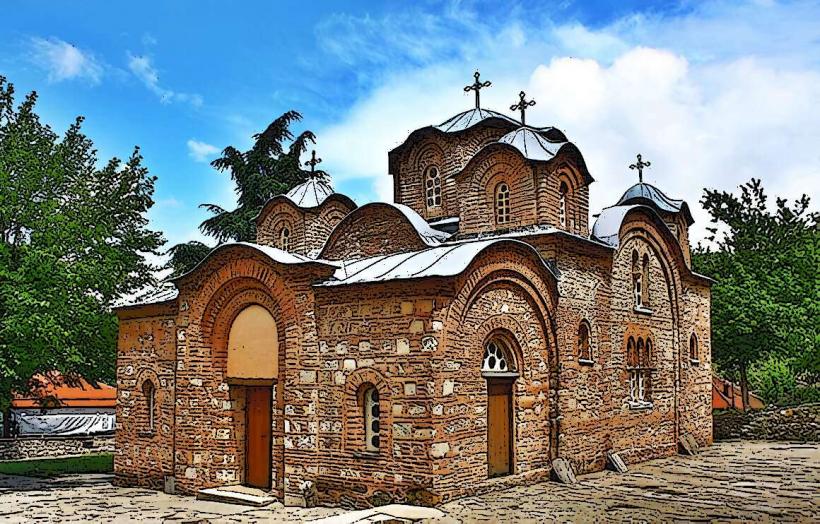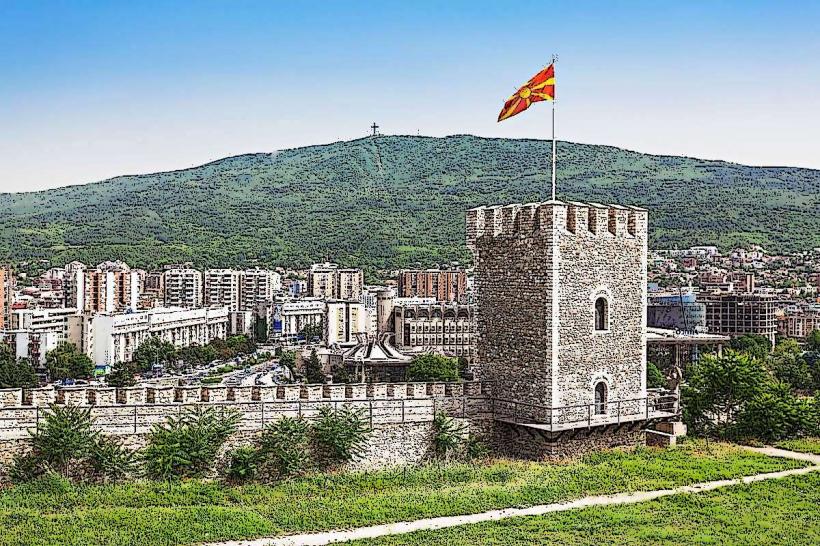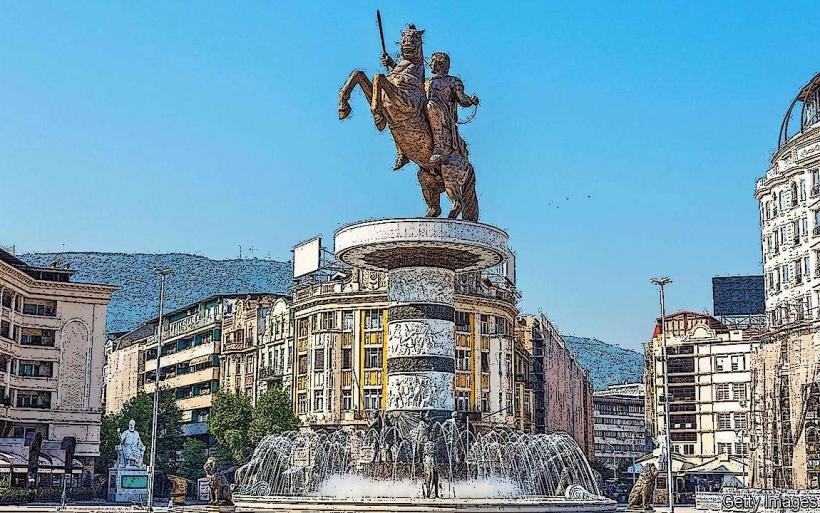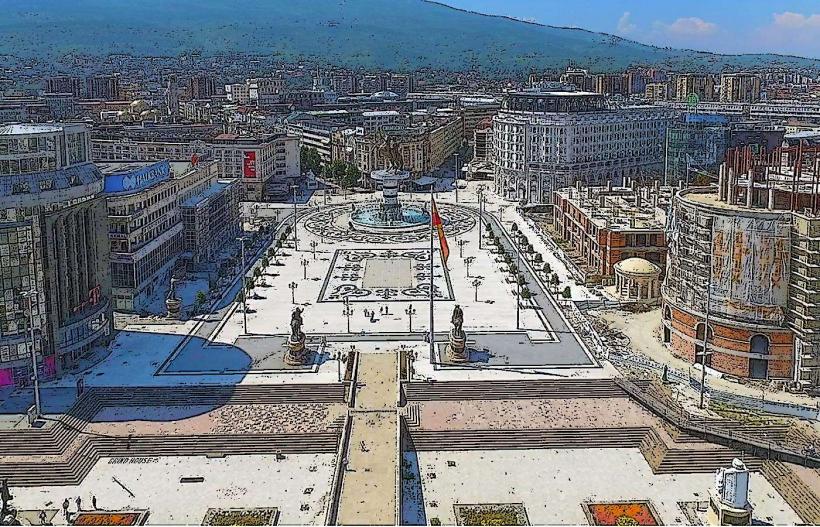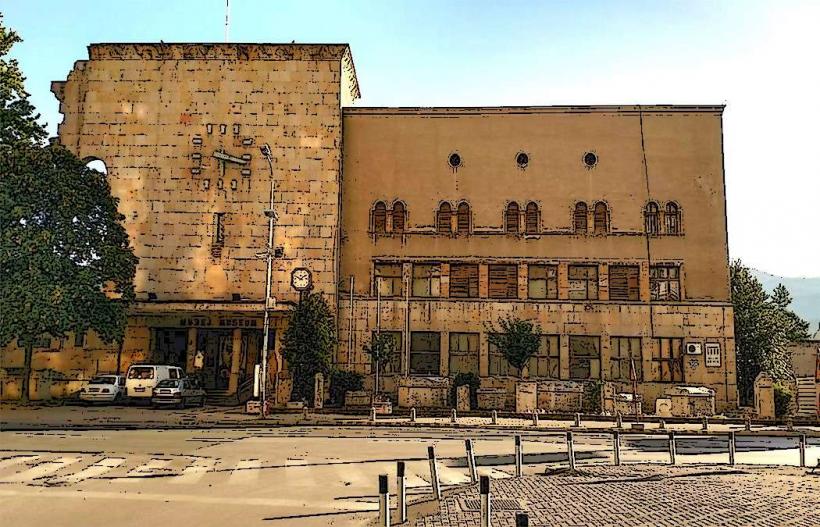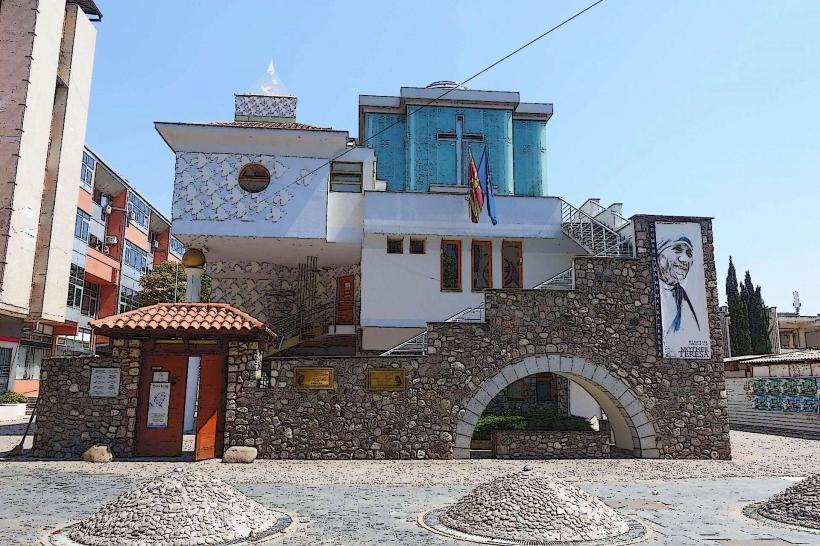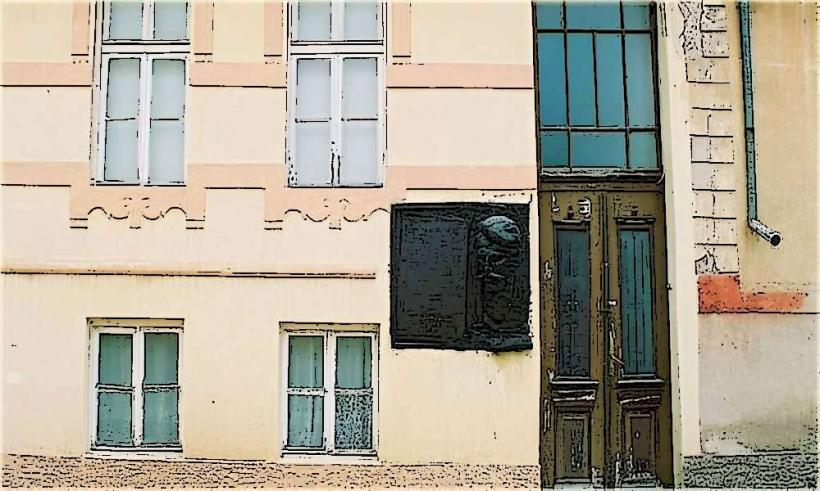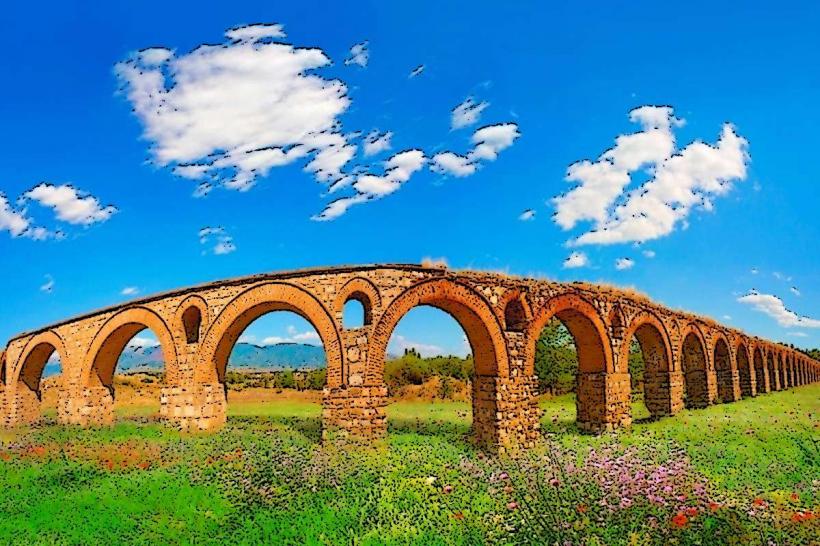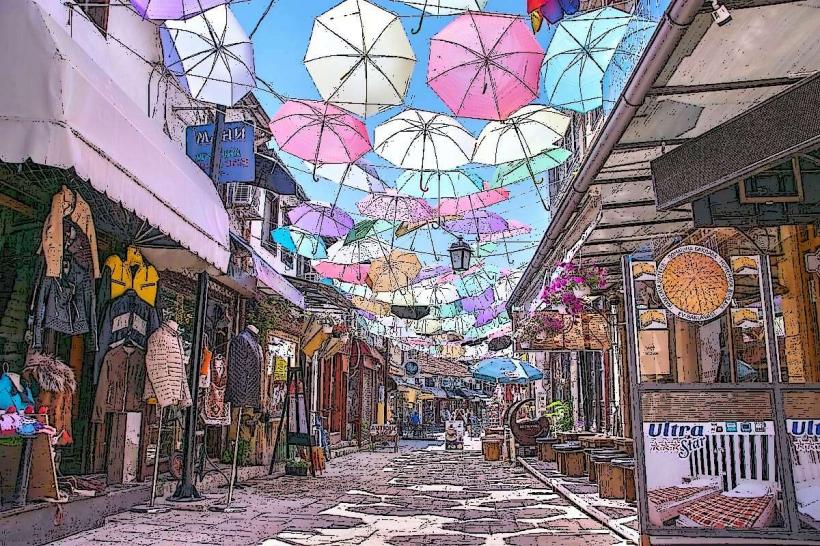Information
Landmark: Stone BridgeCity: Skopje
Country: North Macedonia
Continent: Europe
The Stone Bridge (Камен мост, Kamen Most) is one of the most iconic landmarks in Skopje, North Macedonia, and serves as a symbol of the city. Spanning the Vardar River, it connects the old Ottoman-era Bazaar (Čaršija) in the north with the modern city center and Macedonia Square in the south. The bridge is both a functional structure and a historical monument, reflecting centuries of Skopje's rich and diverse heritage.
Overview
- Location: Central Skopje, over the Vardar River.
- Construction Date: Originally built in the 15th century, during the Ottoman Empire, though some evidence suggests a Roman foundation.
- Architectural Style: Ottoman with possible Roman origins.
- Length: Approximately 214 meters (702 feet).
- Width: About 6 meters (20 feet).
- Material: Constructed primarily of stone blocks, with twelve semicircular arches.
History
Early Origins:
- Archaeological studies suggest that the bridge may have been constructed on the foundations of an earlier Roman bridge. However, the current structure was built during the Ottoman period, commissioned by Sultan Mehmed II ("Mehmed the Conqueror") in the mid-15th century.
Ottoman Era:
- The Stone Bridge played a vital role in connecting different parts of Skopje and facilitating trade within the region. It also served as a strategic point for controlling access to the city.
- The bridge was maintained and repaired multiple times during the Ottoman rule, ensuring its longevity.
Modern History:
- During the Second World War, the bridge narrowly escaped destruction when retreating German forces planted explosives on it. Local citizens and Allied troops successfully prevented its demolition.
- The bridge underwent significant restoration in the 20th century, preserving its historical appearance while ensuring its structural integrity.
Architecture
The Stone Bridge is a masterpiece of Ottoman engineering, combining functionality with aesthetic simplicity:
- Arches: The bridge is supported by twelve semicircular arches, varying slightly in size to accommodate the natural flow of the river.
- Pavement: The surface is made of smooth stone blocks, creating a walkway wide enough to allow pedestrian traffic.
- Balustrades: Simple yet robust stone parapets line both sides, offering safety and an unobstructed view of the Vardar River and the cityscape.
Cultural Significance
- Symbol of Skopje: The Stone Bridge is depicted on the coat of arms of Skopje and is often regarded as a unifying symbol of the city’s rich history.
- Historical Marker: The bridge links the Old Bazaar, a hub of Ottoman-era culture and commerce, with the modern side of Skopje, reflecting the city’s transformation over centuries.
- Political and Social Relevance: Throughout its history, the bridge has been a gathering place for public events, protests, and celebrations. It continues to play a central role in the life of the city.
Tourism
The Stone Bridge is one of the most visited attractions in Skopje, offering both historical significance and beautiful views:
- Photographic Landmark: The bridge provides a stunning backdrop for photographs, with views of the Vardar River, Macedonia Square, and the Old Bazaar.
- Walking Route: The bridge is a key pedestrian route, allowing visitors to explore both sides of the city conveniently.
- Cultural Context: It is often part of guided tours focusing on Skopje’s history, architecture, and cultural evolution.
- Nearby Attractions: The bridge is surrounded by other notable landmarks, including the Alexander the Great Monument, Archaeological Museum of North Macedonia, and the Mustafa Pasha Mosque.
Preservation and Challenges
- Restorations: Over the centuries, the Stone Bridge has undergone numerous restoration efforts to maintain its structural and historical integrity.
- Flood Risks: The Vardar River has occasionally posed challenges due to flooding, but the bridge’s robust construction has ensured its survival.
- Modern Integration: Efforts have been made to preserve the bridge as a historical monument while adapting the surrounding area to modern urban life.
Conclusion
The Stone Bridge stands as a timeless link between Skopje’s past and present. As both a functional structure and a historical treasure, it embodies the resilience and cultural diversity of North Macedonia’s capital. Whether for its historical importance, architectural beauty, or scenic views, the Stone Bridge is a must-visit landmark for anyone exploring Skopje.


